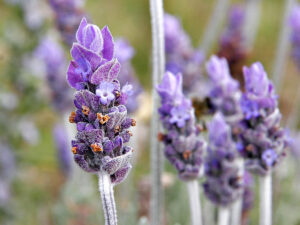Your circulatory system transports life blood around your body and takes away toxins. It is backed up by your lymphatic system, which drains away excess fluids, toxins and waste. Your next essential system provides your body with oxygen, which is required by all your cells for energy to allow these processes and other chemical reactions to take place. This is your respiratory system. It also carries away the waste product of respiration, which is carbon dioxide.
What you breathe in
The ailment that most frequently affects the respiratory system is the common cold, from which you can often recover without assistance providing your immune system is not impaired. Other factors that can affect your respiratory system are smoking and air pollution, the latter of which is of increasing concern.
Essential Oils for your Respiratory System
Aromatherapist Salvatore Battaglia recommends you use oils derived from trees for respiratory ailments, pointing towards research that suggests leaf oils are good for acute and short-term problems and wood resin oils are good for chronic conditions. Dietrich Gumbel points out that as leaves are respiratory organs of plants, their oils have a therapeutic effect on your respiratory system. You oils are listed by their properties. Many of them are derived from trees or plant leaves.
Antimicrobials
- Cajeput
- Lavender
- Lemon
- Lemon scented eucalyptus
- Pine
- Rosemary
- Tea tree
- Thyme

Antispasmodics

- Basil
- Cajeput
- Cypress
- Clary sage
- Eucalyptus
- Sweet fennel
- Thyme
Expectorants
- Sweet fennel
- Ginger

Other oils soothe the mucous membranes, like sandalwood, or help suppress coughing, like eucalyptus, peppermint and thyme, which are added to throat lozenges. Oils that support the immune system are also of benefit.
Treating the Respiratory System
Respiratory tract infections can make your life miserable because the symptoms often reduce your quality of life. Essential oils can help to fight infection and relieve pain.
Asthma
Asthma is characterised by coughing, wheezing and severe difficulty in breathing caused by the narrowing of the bronchial airways (branches of the major air passages into the lungs). Attacks can be offset by a wide range of stimuli such as allergens, drugs, over-exertion, emotional states, air pollution and infections. People who suffer from asthma often do so from an early age and have other conditions such as hay fever or dermatitis. (Bronchial asthma, discussed here, should not be confused with cardiac asthma, which is due to left ventricular heart failure and requires medical treatment.)
Preventative measures include avoiding known allergens such as house dust mites, domestic pets and food additives. Inhalations of essential oils that have antispasmodic properties are useful. Inhale from a bottle rather than from steam as the latter can aggravate asthma.
Tonsillitis and Sore Throats
Your tonsils are oval-shaped lymphoid tissues at the back of your throat - unless you had them removed as a child. They are part of the lymphatic system and help support its role in immunity by protecting against upper respiratory tract infections, such as those that affect the throat. Tonsillitis is a common childhood ailment and rarer in adults. It sees the inflammation of the tonsil due to an infection.

To fight an infection, use antimicrobial oils such as lemon, tea tree and thyme. Essential oils can also be chosen for their antiseptic and anaesthetic properties, such as lavender, to relive pain. Steam inhalations are the best method of use.
A sore throat can be caused as a side effect of another condition, such as tonsillitis, colds and flu or a viral infection. It can also be caused by an irritant to the mucous membranes in the back of the throat, such as allergens. Useful oils include lemon and soothing sandalwood.
Catarrh, Colds and Flu
Catarrh is common to many respiratory problems such as asthma, colds and flu, hay fever, bronchitis and sinusitis. The condition is the excess production of mucous in the lungs.
Essential oils that are expectorant and decongestant help to clear out mucous. These include sweet fennel and ginger. Battaglia also recommends steam inhalations using cajeput, eucalyptus, lavender, rosemary, pine and peppermint.
When catarrhal conditions are caused by allergens such as pollen, anti allergenic oils like German chamomile an lavender are very useful.
Many essential oils can be used to treat both colds and flu and are chosen for their antimicrobial (tea tree and thyme) or expectorant (sweet fennel and ginger) properties. Coughs can be soothed and suppressed with oils like sandal wood, eucalyptus and peppermint.
Bronchitis
Your bronchi (plural for bronchus) are the two major air passages that branch out from your oesophagus (windpipe) towards the lungs. Bronchitis sees the bronchi becomes inflamed with a build-up of phlegm, also causing coughing fits. There are two types of bronchitis.
Acute bronchitis is caused by viral or bacterial infection, which narrows the bronchi through spasmodic contractions and results in often violent coughing fits.
Chronic bronchitis is complicated by acute infections on top of the inflammation and is especially prevalent in people who smoke and/or who live in polluted cities.
For both conditions you should see your doctor, but essential oils that can help include basil, cajeput, cypress, sweet fennel, rosemary and sandalwood.